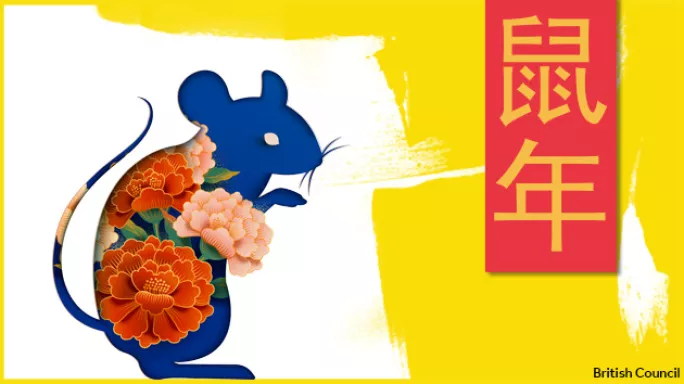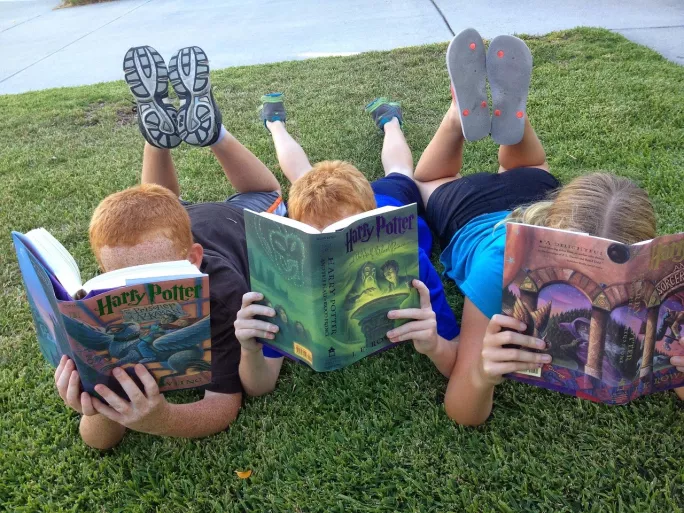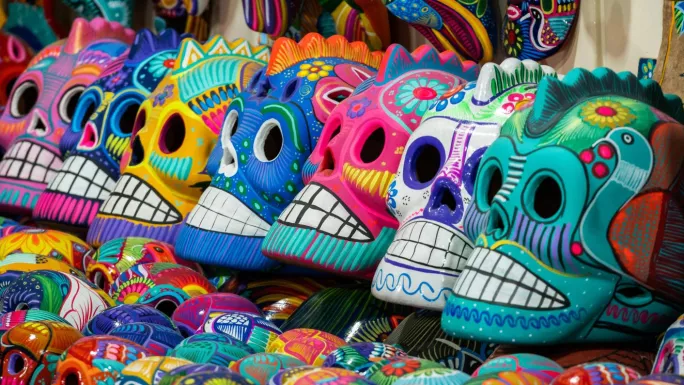Key events to inspire international education in 2020

The new year has arrived and brings with it numerous events that teachers can circle in their calendar to use as inspiration for interesting, informative and memorable lessons. We’ve picked out a few key events across the year to help get you started.

JANUARY: Chinese new year
Chinese new year starts on 25 January and this year will be the Year of the Rat. Why not utilise it to teach children about the country’s fascinating history, language and culture. There are resources available that can help teachers plan this, too.
FEBRUARY: International Mother Language Day
The United Nations’ (UN) International Mother Language Day takes place on 21 February. Its aim is to “encourage linguistic diversity and multilingual education” and help develop an “awareness of linguistic and cultural traditions throughout the world”. This event provides huge scope for teachers to talk with pupils who come from multilingual families or staff themselves could discuss their own linguistic backgrounds, and this could be linked to a wider context of different languages’ history, heritage and culture.
MARCH: International Women’s Day / International Day of Happiness
International Women’s Day celebrates the social, economic, cultural and political achievements of women, and is a call to action for accelerating gender equality. It takes place on 8 March and the theme this year is “generation equality” drawn from a notion of “collective individualism”.
This links well to discussions about citizenship and how our individual actions can have an impact on our larger society. Despite some progress, no country has yet achieved gender equality, so why not prompt students to explore the reasons behind this and how the UK compares with countries around the world. You can discuss how we can actively choose to challenge stereotypes, broaden perceptions, improve situations and, collectively, try to create a gender-equal world.
The International Day of Happiness on 20 March is a great opportunity to focus on an issue that’s fundamental to our enjoyment of the world and what we want from it.
There are plenty of ways schools could interpret this from asking children what makes them happy and what they think will make them happy in the future, to looking at how other countries or cultures interpret happiness.

APRIL: International Children’s Book Day
While World Book Day in March is a fixture on many school calendars, International Children’s Book Day (ICBD) marks the birth date of Hans Christian Andersen and is organised by the International Board on Books for Young People (IBBY). The event takes place on 2 April, or as close as possible, and each year a member nation is the host country for the event, with 2020 being led by Latvia.
Teacher Lauran Hampshire-Dell says this is something she has used regularly to engage children in stories and tales from other parts of the world: “ICBD gives teachers a chance to celebrate literacy and show students this wider world of literature. Foreign children’s books often explore religion/immigration/economics, etc in ways that we don’t do enough.”
MAY: World Day for Cultural Diversity
World Day for Cultural Diversity for Dialogue and Development on 21 May is about helping to try and deepen our understanding of the value of cultural diversity and helping us to learn to live together in a better way. The UN, which organises the event, suggests numerous ways in which the day can be used to do this, from watching an international movie to playing a sport from a different culture to visiting a museum dedicated to other cultures or asking family, friends and those around you to talk about their culture and its customs.
JUNE and JULY: World Refugee Day / UEFA European Football Championship
Another event to celebrate cultural diversity is the UN World Refugee Day on 20 June. The event provides an ideal opportunity to promote a better understanding of why people seek sanctuary, the experiences of refugee children and the wide-ranging contribution that refugees make. Teachers can spark interesting discussions on the concepts of identity and displacement, and the importance of encouraging a better understanding between communities.
The 2020 UEFA European Football Championship is also a great chance to engage children in the cultures and traditions of numerous countries across the continent.
The tournament has been increased to 24 teams, meaning that a wider array of nations will be taking part, providing plenty of opportunities to study different countries.
There’s also the added bonus that the 2020 tournament will involve several matches played in the UK, including the final at Wembley Stadium, sparking even more excitement about the event across the country, particularly if any of the Home Nations progress in the tournament.
JULY and AUGUST: The 2020 Olympics in Tokyo
The Olympics are another way to inspire and enthuse children, not just in a sporting context but by using the games as a starting point for considering the host country’s customs and traditions.
Paul Keogh, a Year 7 learning manager at King James’s School in Knaresborough, North Yorkshire, says using sporting events like this is a great hook for boosting language learning: “At our school, we link into major sporting events to promote language learning. The pupils play in mixed teams in an in-house tournament at lunch, after a draw in assembly with flags and anthems and learn the language of their adopted country.”
SEPTEMBER: European Day of Languages
An initiative of the Council of Europe, the European Day of Languages has been celebrated on 26 September every year since 2001. The aim is to promote the importance of languages as a means of “achieving greater intercultural understanding” and to celebrate the “rich cultural heritage” of our continent.
The Council of Europe’s website offers a raft of resources for teachers who want to get involved in this, from fun facts and quizzes to use, through to posters and stickers that can help to promote any school activities themed around the day.
Mr Keogh adds: “On the European Day of Languages, staff wear a badge containing a greeting and phonetic spelling in many different languages. The pupils have to find as many different ones as they can to win a prize.”

OCTOBER: World Space Week / The Day of the Dead
World Space Week runs from 4-10 October and is designed to celebrate humanity’s space-related achievements and the roles that people from across the world have played in doing this - from the Moon landings to the satellites used to run much of the modern world.
The event could give you lift-off to discuss some fantastic international collaborations and to consider how the world is linked through space and the importance of working together to achieve something great.
Also in October and running into the beginning of November, the Mexican event Día de los Muertos (Day of the Dead) could be a great chance to focus on the culture of Mexico and how people there celebrate family and their heritage, from poetry and sugar skulls, through to cooking up a culinary feast.
This is something Adam Lamb, an MFL teacher from London, says his school does to great effect. “One thing we have found brilliant about the new GCSE specification that really lends itself to cultural events is the inclusion of festivals - for instance, this year for Day of the Dead we all created lessons around the festival to explore the tradition.”
NOVEMBER: International Education Week
Taking place in November, International Education Week is geared towards giving schools inspiration and exercises to bring an international element to school life.
The British Council aims to get schools thinking about how they can bring an international focus to their environment, from discussing international cultures to thinking about engaging with schools across the world. There are reams of resources that can help with this, or indeed other activities throughout the year that the organisation has produced.
DECEMBER: Christmas celebrations
Finally, the run-up to Christmas is a great time to discuss the different ways that countries and cultures across the world celebrate Christmas - or other unique holiday traditions - as well as engage in fun games and activities that can make Christmas a genuine learning opportunity.
“We run a languages-themed Christmas card competition,” says Mr Keogh. “Pupils can use any language along with their creative designs. We also celebrate German Christmas, where pupils come and try out German delicacies, served by staff in national costumes, and do creative activities and games.”
